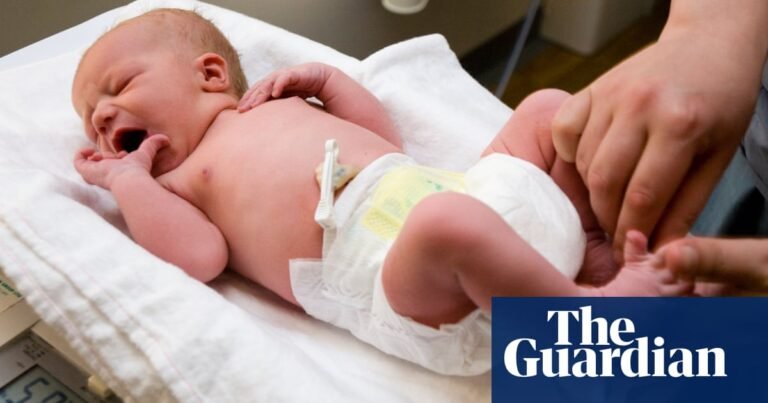Every baby in England is to have a DNA screening to avoid fatal diseases and receive personalised healthcare as part of the government’s £650m investment in DNA technology, it has been reported.
Within a decade, every newborn will undergo whole genome sequencing, which assesses the risk of hundreds of diseases and is expected to form part of the government’s 10-year plan for the health service.
Wes Streeting, the health secretary, told the Telegraph the advances in genomics would allow people to “leapfrog” killer illnesses and receive “personalised” health care.
He said: “The revolution in medical science means that we can transform the NHS over the coming decade, from a service which diagnoses and treats ill health to one that predicts and prevents it.
“Genomics presents us with the opportunity to leapfrog disease, so we’re in front of it rather than reacting to it.”
Streeting added: “With the power of this new technology, patients will be able to receive personalised healthcare to prevent ill health before symptoms begin, reducing the pressure on NHS services and helping people live longer, healthier lives.”
All new parents are now offered a blood spot test for their babies, normally when the child is five days old, to check whether they have any of nine rare but serious conditions. The newborn’s heel is pricked to collect a few drops of blood on a card that is sent away to be tested.
Along with a greater focus on prevention, the 10-year plan is expected to include Streeting’s other “shifts” in the NHS, from hospitals towards more community-focused care and from analogue to digital services.
Last week the chancellor, Rachel Reeves, announced that the government would increase NHS funding by £29bn a year in real terms over the next three years.
A Department of Health and Social Care spokesperson said: “Our 10-year health plan will be published soon and will set out details for a range of initiatives to advance the NHS and make it fit for the future.”
In October, the NHS in England announced it was to screen 100,000 newborn babies for more than 200 genetic conditions in a world-first scheme aimed at bolstering early diagnosis and treatment.


